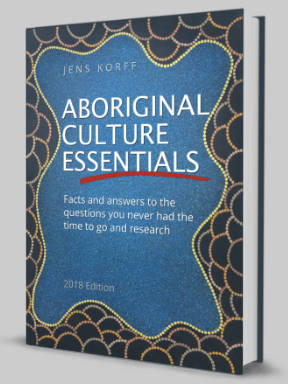Self-determination
Culture of victimisation prevents empowerment
Many Aboriginal people settle either on being a victim or blaming others for being victims. Neither attitude is healthy for self-determination.

Wishing you knew more about Aboriginal culture? Search no more.
Get key foundational knowledge about Aboriginal culture in a fun and engaging way.
This is no ordinary resource: It includes a fictional story, quizzes, crosswords and even a treasure hunt.
Stop feeling bad about not knowing. Make it fun to know better.
Two types of Aboriginal 'leadership'
Self-determination requires Aboriginal people to drop their perceived role of 'victimised' and 'powerless' people and get together to take matters into their own hands.
Aboriginal educator Dr Chris Sarra distinguishes between two types of 'leadership' within Aboriginal communities. One focusses on 'being the victim' and making use of the victim culture, the other uses 'blaming the victim' as an approach to denigrate Aboriginal people [1].
Being the victim
When influential Aboriginal people encourage victimhood they leave Aboriginal people powerless to act on their own behalf. They also shape the perception of non-Aboriginal people who come to believe that Aboriginal people are always begging for more and not interested in managing their own affairs.
As victims, Aboriginal people "are encouraged to see themselves as victims, victims who should be compensated in some way or every way by the victimisers for their historical grievances," explains Dr Sarra [1].
With this approach things happen 'to' Aboriginal people, not 'with' them.
African-American scholar and economist Dr Thomas Sowell argues that the most damaging results of the welfare state mentality is the teaching of victimhood. If African-Americans in the 1930s and 40s had been taught that they were victims, then the Civil Rights movement may have never happened [2].
Aboriginal people might experience learned helplessness, a behaviour that emerges after someone has endured repeated negative experiences which they cannot control. The brain learns that it cannot (seemingly never) control what is happening and thus learns it is unable to change circumstances or achieve goals. A result of learned helplessness is often depression and other mental illnesses.
If you keep drinking, you keep fighting and you keep showing your kids that you don't care about them, then you are showing them that you do not care about our ancestors. You are showing them that you have no respect for yourself or for your country and your people. You are showing them that it is okay to give up, roll over and die and you are showing them how to live life as a victim.
— Sidney Watts, Alice Springs [3]
Blaming the victim
When Aboriginal people blame peers for being victims they say things like "If I can make it you should be able to make it too!"
But this approach whitewashes whoever is responsible for the success of programs and dismisses that every story is different and might be very complex. It lays the blame for deficits or dysfunction at the feet of Aboriginal people.
People are blamed for outcomes beyond their control. One example is when teachers expect Aboriginal students to perform poorly.
An exit from responsibility
Dr Sarra sees both types as an exit from responsibility. "When one is busy being the victim or booting the victim, very rarely does one stop to ask: What am I doing to contribute to underachievement? What am I doing to contribute to the 'disadvantage' and victimisation of Indigenous communities?" [1].
Both approaches emphasise a negative perception of Aboriginal people by non-Aboriginal Australians who think they are hopeless, despicable and have to be pitied or require draconian interventions.